“We managed to restore the roof of the newsroom, destroyed as a result of russian shelling, with the assistance of the National Union of Journalists of Ukraine (NUJU). Although whether to make repairs or not – we thought about this issue for quite a long time, because in the conditions when people leave the Ukrainian-russian border en masse, it is unclear whether it is worth publishing a newspaper or not,” this matter was discussed during the roundtable titled Restoration And Ensuring Stability Of Media In De-Occupied And Front-Line Territories, which took place at the the NUJU on February 15, said Oleksii Pasiuha, the editor-in-chief of the Vorskla newspaper (Velyka Pysarivka, Sumy Region).
“Having received help, we decided to continue working as long as we can…,” says the editor. “The Union also helped us get a training grant from the International Institute for Regional Media and Information (IRMI, Ukraine) and the Fondation Hirondelle (Switzerland). While some powerful publications were closing down in neighboring cities, we managed to survive. And we are not just developing a printed newspaper: we have been taught to work on digital platforms. We created a site and a Telegram channel.”
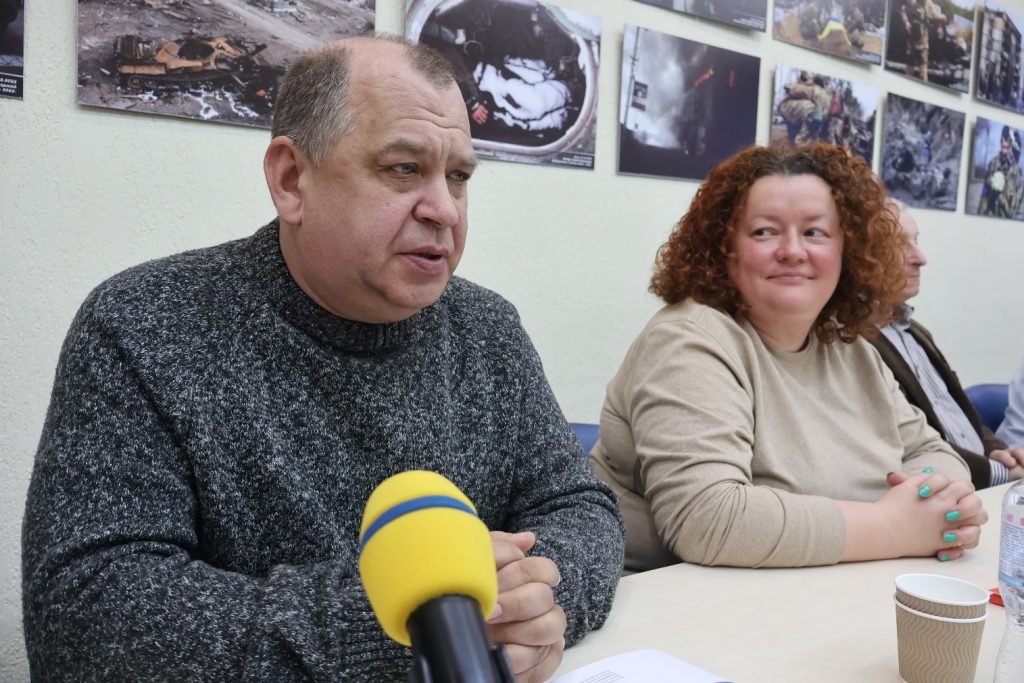
As Oleksii Pasiuha explained, the combination of digital and printed formats is important. The digital format is more modern and accessible from any corner of the planet. The printed newspaper is important for residents of the border, and front-line villages, where russian TV channels are received much better than Ukrainian ones, and many settlements do not have electricity.
“Thanks to the Union, partners, for remembering us. Just one thought that you are cared for gives us strength,” said Oleksii Pasiuha.
Unfortunately, the publication will need urgent assistance again: the next day after the roundtable, on February 16, there was another mortar shelling in Velyka Pysarivka, as a result of which the premises of the newspaper’s newsroom were damaged again. Fortunately, no one was hurt…
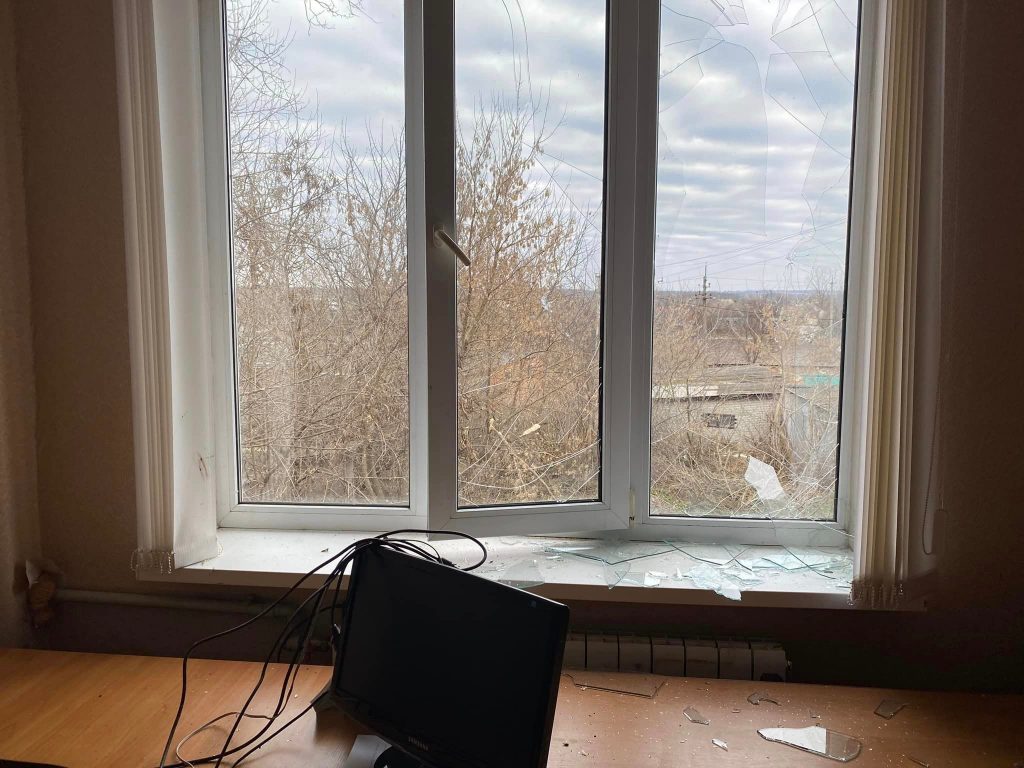
The media cannot survive without the modernization of their publications and competent state information policy
The participants in the event held at the NUJU last Thursday, namely government officials, media experts, media editors, and journalists, called the roundtable quite useful. The event was held in partnership with the IRMI and Fondation Hirondelle as part of the large-scale international expert discussion Two Challenging Wartime Years: Overcoming Challenges For Journalists’ Safety And Media Sustainability. The discussion was organized by the NUJU and the Ministry of Culture and Information Policy under the patronage of the UNESCO National Commission.
“Unfortunately, today in Ukraine, which is at war, it is unsafe for anyone, including media workers. In these conditions, we must make efforts to restore and sustain the media, including in the de-occupied territories. There is a lack of resources for the long-term performance by journalists and Ukrainian media of their information duties to the audience. Emergency response is trying to work for free 24/7, but as two years have passed since the beginning of a full-scale invasion, we need to talk about finding internal resources in the industry so that the media has stability and does not shut down so that Ukrainian journalists stay in the profession,” said the President of the NUJU, Sergiy Tomilenko.
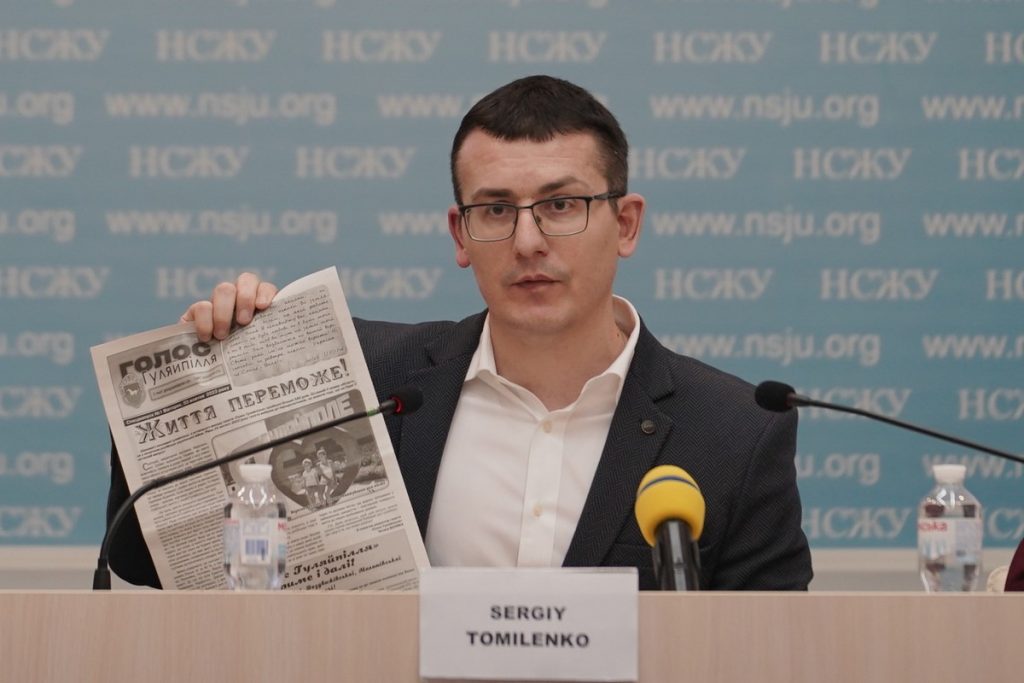
Bohdan Chervak, First Deputy Chair of the State Committee for Television and Radio Broadcasting of Ukraine, speaking at the roundtable, emphasized the importance of public access to reliable information in the de-occupied and front-line territories.
“The tragedy that has been happening in the east and south of Ukraine since 2014 is largely caused by the lack for the local population of reliable and correct information about what Ukraine is, the Ukrainian state,” said Bohdan Chervak. “When the russian occupation forces invaded our country, they first captured the newsrooms of the media… The occupiers are trying to do everything possible and impossible to defeat us not only on the battlefield but also in the media. For this, they use huge resources, and involve their agency, which operates in Europe, the United States, in fact, all over the world. Therefore, the issue of preserving Ukrainian media immediately became relevant. The President of the NUJU, Sergiy Tomilenko, is constantly talking about this.”
Bohdan Chervak emphasized the importance of restoring not only television, radio, and online publications but also newspapers, which have become a visible fact of the return of the Ukrainian state for people who survived the occupation, in the front-line and de-occupied territories. He expressed regret that only the State Committee and the NUJU consistently defend the importance of the print media for modern information policy. The situation can be improved by improving communication with the local authorities, which should more actively support the local press. Bohdan Chervak also expressed his gratitude to international partners who provide financial support to Ukrainian media.

One of the most powerful international initiatives focused on supporting Ukrainian regional media is the project called Strengthening Media Sustainability In Ukraine. It is implemented by the Fondation Hirondelle and the IRMI and is financed by the Swiss Solidarity Foundation.
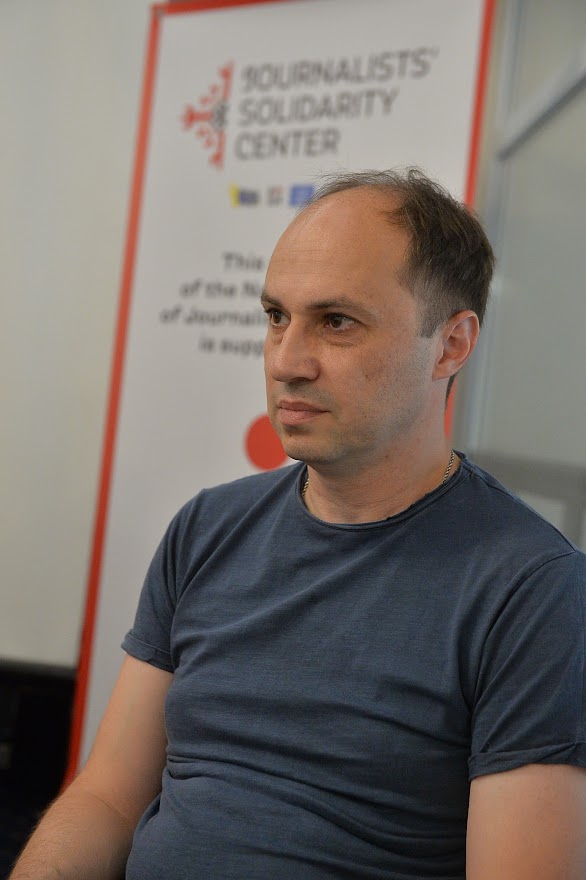
“From the very beginning of the full-scale war, IRMI and its partners, the main of which is Fondation Hirondelle, have focused on supporting regional and hyperlocal media in the regions that suffer the most from russian aggression,” notes Oleksii Soldatenko, the IRMI program director. “The key factor for us is the motivation of newsrooms for development and changes. At the end of the second year of the war, partner organizations practically stopped financially supporting the media simply for their survival. Local media is becoming more and more complex. And not just because many communities have been destroyed, but the publications themselves have been relocated, but also due to the fact that their audiences are no longer geographically localized… Local newsrooms that understand this have been working in digital format for a long time. We help them study their audiences in order to understand, in particular, their requests, which have also changed significantly over the past two years… The grants we provide help editors to focus on development without thinking about where to get money for another month of work.”
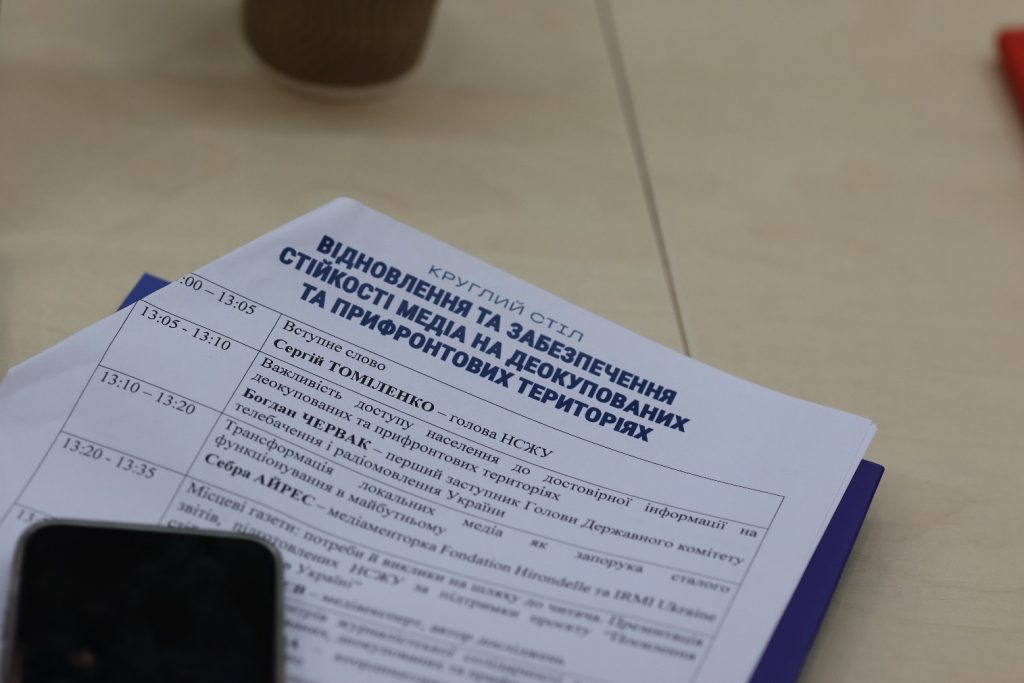
Media expert and author of the NUJU‘s studies on the needs and challenges of local newspapers on their way to the reader, Vitalii Holubev, drew attention to the research on the activities of Ukrposhta and the state of postal delivery of newspapers.
“When we conducted a survey among 130 editors and asked them to rate on a 10-point scale the quality of delivery of newspapers by Ukrposhta, the average score they gave was 3.4…,” Vitalii Holubev said. “Today, unfortunately, Ukrposhta has nothing to do with the provision of good services. Postal workers plainly explain to consumers that they have low salaries, no one wants to work, and people are laid off, so there are no workers in half of the local offices… I can understand the head of Ukrposhta, Ihor Smilianskyi, who has to resort to unpopular measures such as raising tariffs, closing unprofitable directions, etc. But other questions should also be raised, for instance, about state-guaranteed compensation for financing these unprofitable but very necessary areas for society. It’s like transporting beneficiary citizens on public transport.”
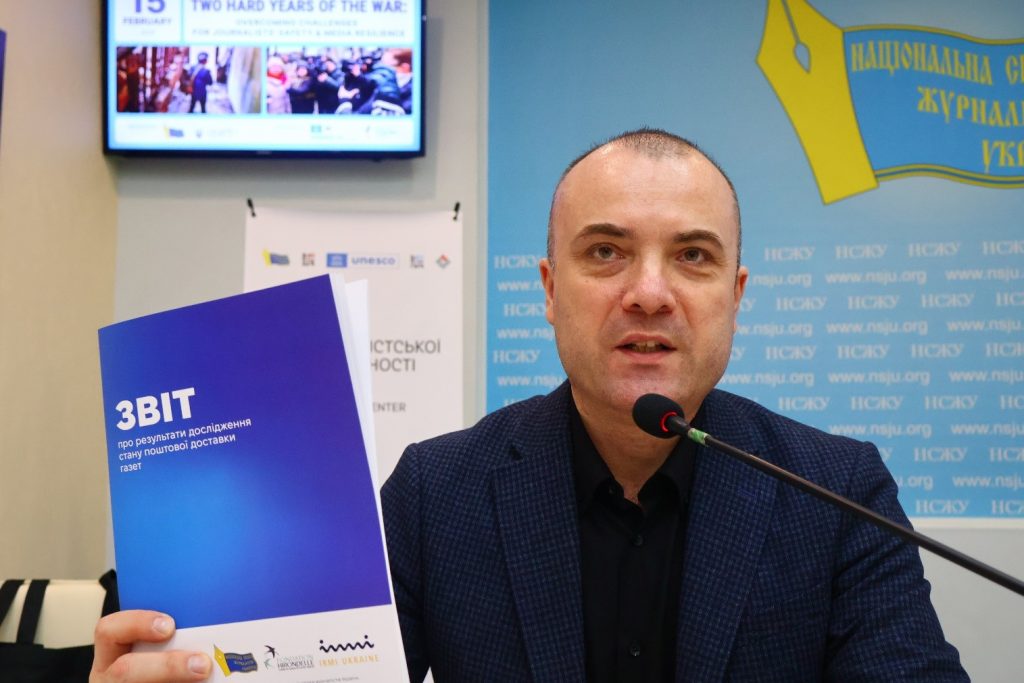
Vitalii Holubev emphasized that speaking about an inclusive society, the state should take care of providing full access to all opportunities of social life to vulnerable categories: not only to people with disabilities (which is important) but also to users of print media who live in villages and due to age and other restrictions will not be able to become active users of Internet services. This is especially important for front-line areas, where this issue becomes a problem of information security.
The NUJU insists on the creation of an effective mechanism for solving information security issues at the level of a working group involving representatives of the authorities, the postal operator, publishers, editors of publications, and the NUJU to find a common solution.
“Newspapers are mainly what people staying under enemy shelling are waiting for”
Dariya Zyrianova, a TV operator of the My – Ukrayina! [We are Ukraine] national TV channel and an assistant at the Zaporizhzhia Journalists’ Solidarity Center, said that she was pleasantly surprised by the attitude of local residents to journalists during trips to the front-line cities and villages.
“They thank us for the fact that we do not forget about them, people who live in destroyed houses and basements, without water, electricity, heating, mobile communication,” said Dariya. “In these settlements, the only real way for people to get information is to go to an invincibility point to watch the Unified Marathon or to call relatives from there… But people say that they are waiting for newspapers the most. Every newspaper that falls into their hands becomes a treasure. After all, you can read the newspaper at home, without going to an invincibility point and without exposing yourself to additional danger. With the help of the NUJU and international partners, editors Svitlana Karpenko from Orikhiv and Tetiana Velyka from Huliaipole were able to restore the publishing of their newspapers, former District newspapers, Trudova Slava and Holos Huliaipillia. It felt like an unreal breakthrough!”
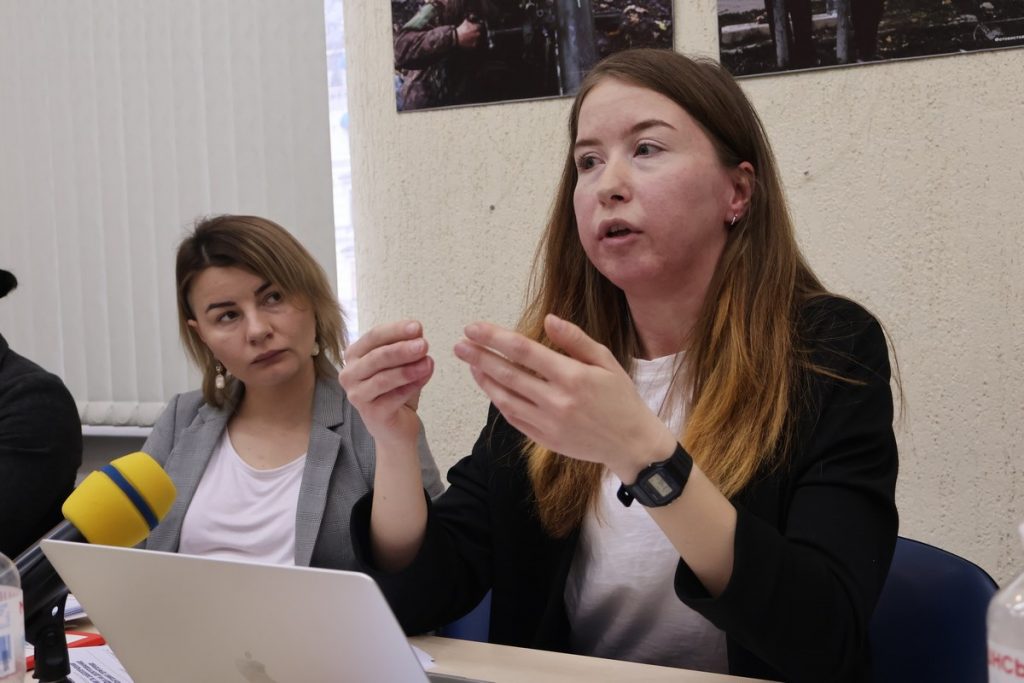
In particular, as Dariya emphasized, Trudova Slava is read in 54 settlements of the former Orikhiv Community, which has become a front-line area. All these settlements are shelled every day, but thanks to Trudova Slava, their residents have access to true information. The Huliaipole Community, part of which is occupied, is not in a better situation either. In the free territory of the community, readers receive the Holos Huliaipillia thanks to the heroic work of workers Ukrposhta.
Dariya Zyrianova thanked the NUJU and its international partners for providing financial, psychological, technical, and security support, primarily to local publications. She urged not to stop such support.
“In Ukraine, and especially in the front-line regions, not only printed newspapers but also websites are gradually ceasing their activity. Employees are being cut,” freelance journalist from Zaporizhzhia, Olha Bohlevska, emphasized while speaking at the roundtable. “Therefore, the Journalists’ Solidarity Centers play a very important role. I am a regular user of the services of the Zaporizhzhia Journalists’ Solidarity Center. This gives me great support – both psychologically and organizationally: you can come here every day to work in comfortable conditions at the computer, use the Internet, and chat with colleagues. This is a convenient workplace for people who, for various reasons, cannot work in the newsroom or at home. Also, our center has many activities for people who have left the occupied territories, having lost everything. And the center understands your problems and is ready to support you, treat you to coffee, help you write a grant application, and establish contact with colleagues in Kyiv and other cities.”
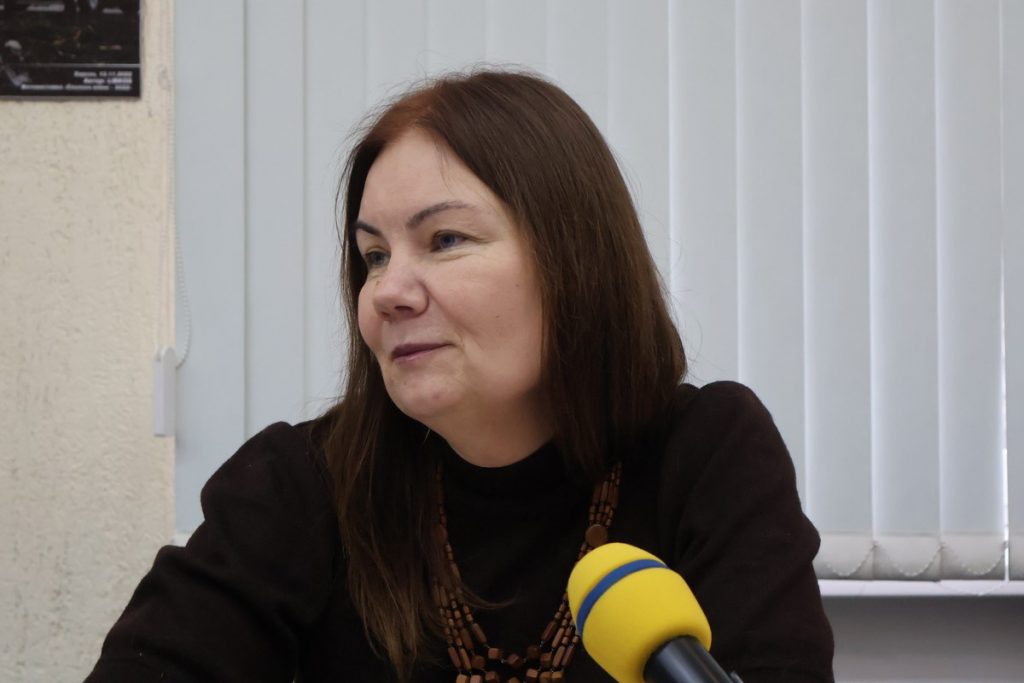
Yevheniya Virlych, the editor-in-chief of the Kavun.City publication from Kherson said that during the occupation of the city, the journalists of the publication had an appeal to the subscribers and readers of the publication.
“Now that we have relocated, we are currently choosing the positioning of our publication. We do not know if we will return home. At the same time, we remain a publication from Kherson… In addition, before the war, we, Kavun.City positioned ourselves as a “fresh, juicy” publication – about tourism, entertainment, etc. With the beginning of the war, news became relevant. And now, there are publications that specialize in news. So, we should no longer present ourselves as journalists but produce some other content. Now, we will probably partially return to the pre-war format and, perhaps, become a publication “about Kherson in any part of the world” and not only about “Kherson on the map.” We pay a lot of attention to refuting fakes spread by the russians. In addition, we are worried about the destruction of Ukrainian identity and Ukrainian monuments by the occupiers,” Yevheniya Virlych said.
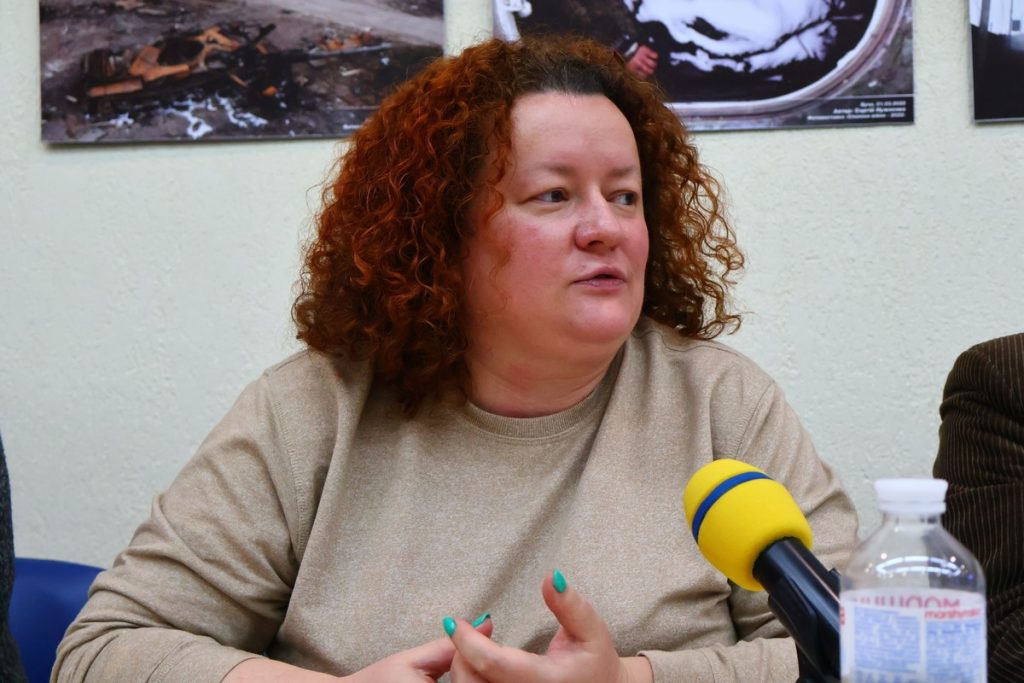
The roundtable was also attended by journalists, media managers from the front-line areas – coordinators of the Journalists’ Solidarity Centers in Dnipro and Kharkiv, Nataliya Nazarova and Hanna Chernenko; the secretary of the NUJU / journalist of Krym.Realii, Mykola Semena; the media expert on security / representative of the Justice for Journalists Foundation (Britain), Serhii Huz; the editor of the Ridne Misto newspaper from Myrnohrad, Donetsk Region, Maksym Zabielia; and the editor of the Peremoha newspaper from Krasnopillia, Sumy Region, Oleksandr Motsnyi.
Summarizing the discussion, the President of the NUJU, Sergiy Tomilenko, emphasized that the work of the media cannot be treated as just a business because Ukrainians’ access to information depends on them.
“If there is no media, society will experience information hunger, which may lead to social tension or to seeking information elsewhere. At the same time, there should be constant discussions in the newsrooms about the observance of professional standards, about the preparation of quality materials, and the effective transformation of the economic model and technological development,” said Sergiy Tomilenko.
The National Union of Journalists of Ukraine promises that the Union will constantly draw the attention of the authorities and international partners to regional media and, at the same time, promote the exchange of successful experiences with the aim of strengthening the stability of the Ukrainian media sector.
The roundtable was held by the NUJU with the support of the Strengthening Media Sustainability In Ukraine project implemented by the Fondation Hirondelle and the IRMI and financed by the Swiss Solidarity Foundation.
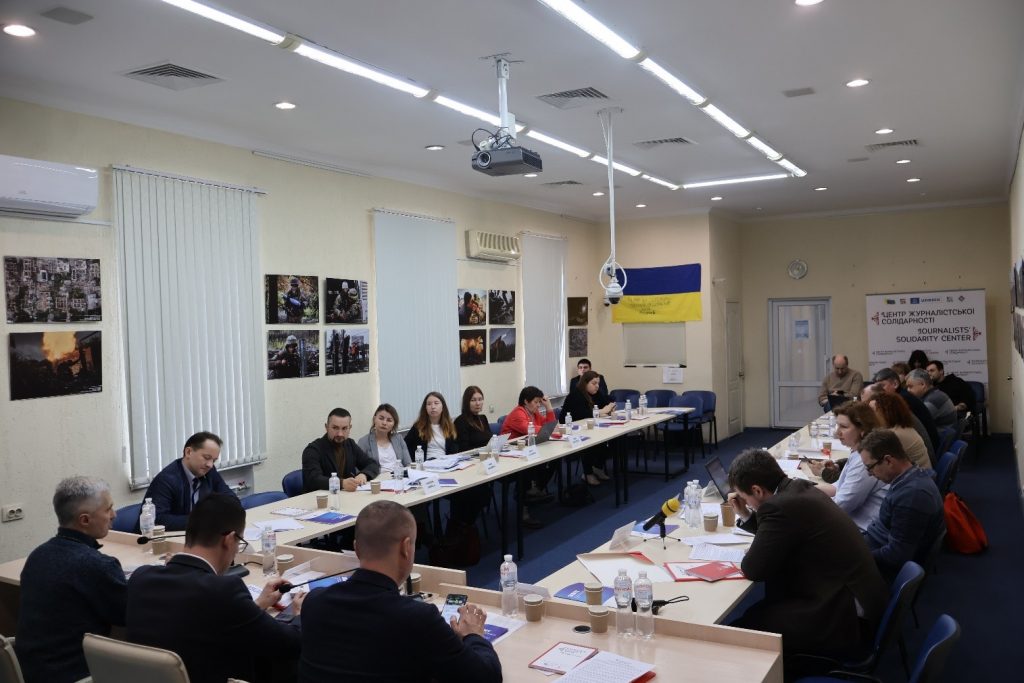
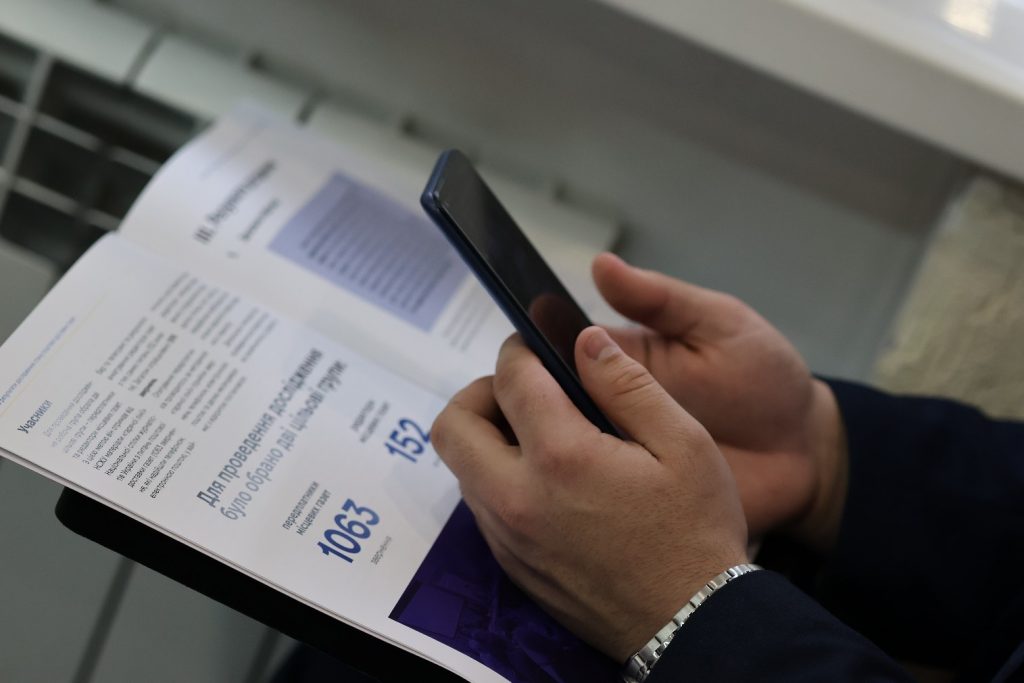
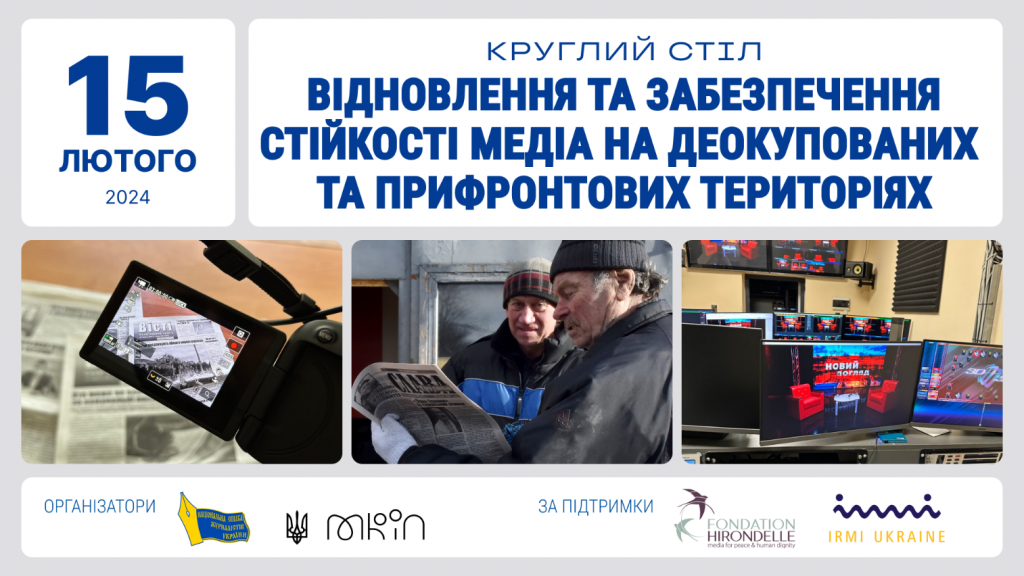
NUJU Information Service

 THE NATIONAL UNION OF
JOURNALISTS OF UKRAINE
THE NATIONAL UNION OF
JOURNALISTS OF UKRAINE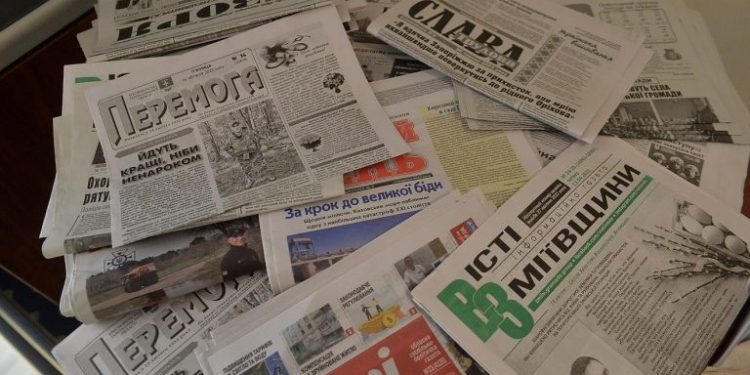
















Discussion about this post